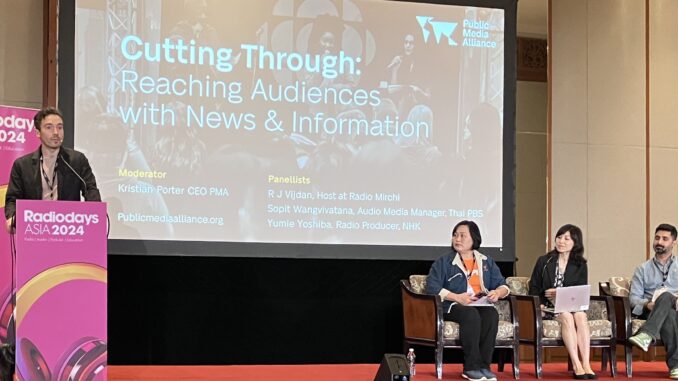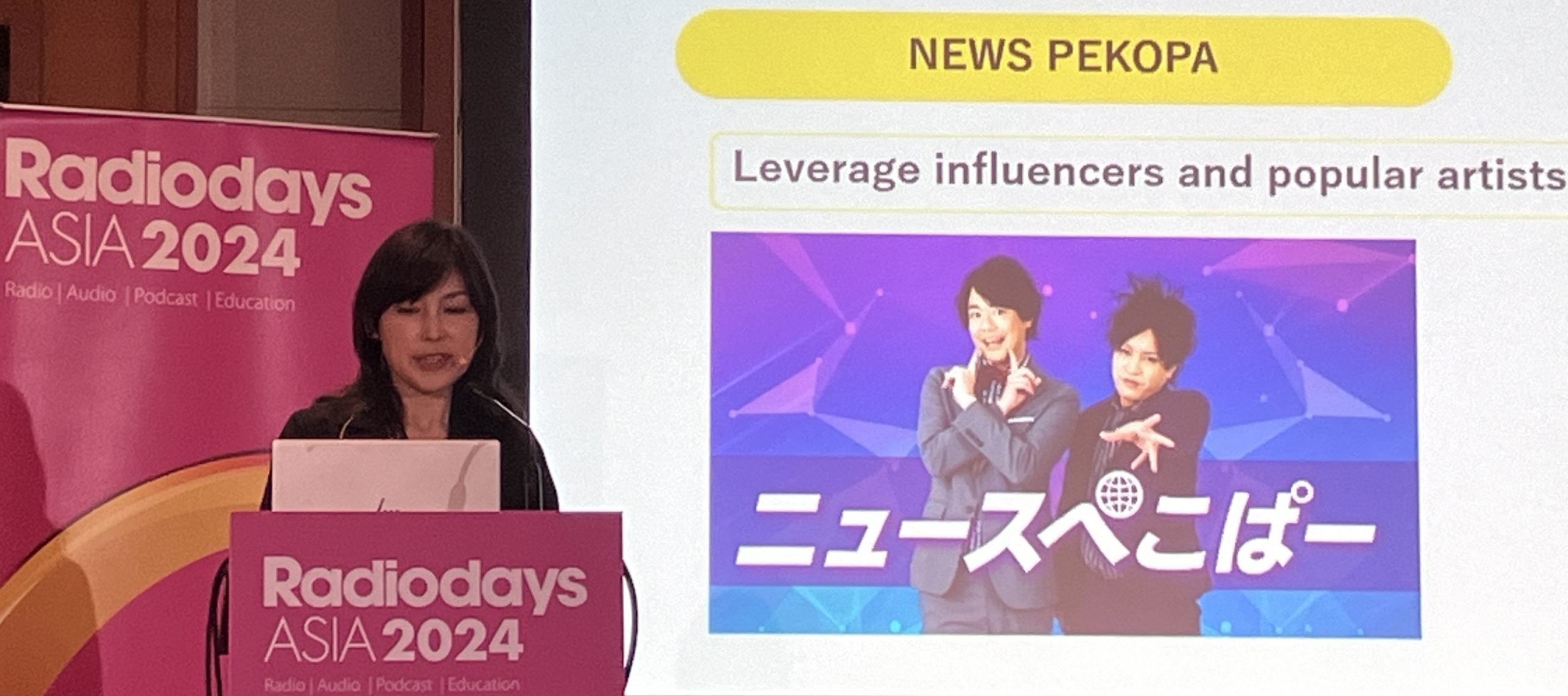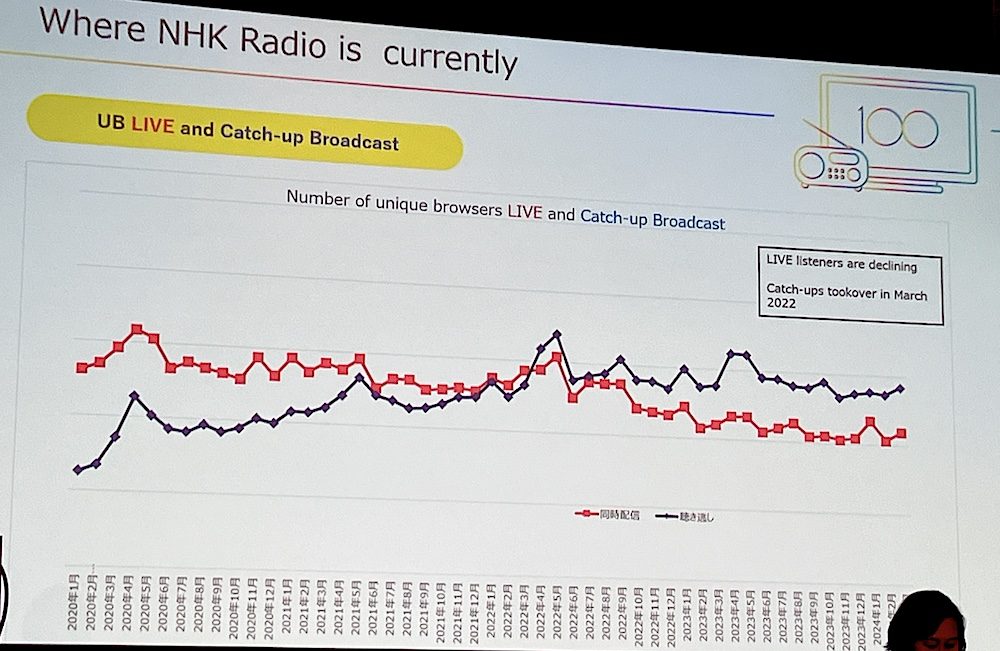
In a session hosted by the Pubic Media Alliance, RJ Vijdan Saleem, a Radio Mirchi radio jockey from Kashmir told a story of an entertainment radio presenter who was faced with breaking news of his uncle who was shot dead during his debut radio shift. Then revealed the story was about him.
His uncle was a journalist who was the victim of the continuing territorial tensions in Kashmir. Due to radio broadcast regulations in India, presenters on commercial entertainment stations are not allowed to broadcast or discuss news stories.
“I could not talk about it because, due to regulations you can’t talk about news directly or indirectly. So how did I talk about it? I talked about my uncle’s death and played music suitable to my emotions, but was limited in how I could talk about the wider issues.”
Vijdan has been disciplined and was taken off air for 4 months at various times due to some of his comments, but hen still feels it is important for him to reflect what the audience is feeling at times when violence breaks out or there are internet bans or other troubles in the region.
“There are days when my city goes silent, but I can’t talk about it… At those times I try to reflect the mood of the city. I can’t discuss a murder, but I have to reflect the mood of my people.
“This is the biggest challenge I face. I navigate it through music, stories and words that resonate with my audience’s feelings. I can’t be going ‘ha… ha… ha’ when my city of facing something hard, yet I can’t speak about news.”
He says India needs to “broaden the canvas” and allow news on radio. “We will still entertain you, but we would have more things to talk about,” he says.
PMA’s Kristian Porter says the challenges facing public service media are growing, which is why the conference session is looking at stories from the region that highlight the challenges and solutions media companies are dealing with.
“In many places audiences are tuning out from hard news content… the media ecosystem is increasingly cluttered. The fight to cut through is becoming more difficult. Part of the challenge lies in more competitors such as streaming services and even gaming platforms. In this ecosystem radio needs trust to thrive.”
The Public Media Alliance is the largest global association of public broadcasters, it’s mandate is to support and advocate for public Service Media. Media freedom, journalist safety and knowledge sharing are some of the key advocacy areas for PMA, which also has a podcast.

Yumie Yoshiba (pictured above) from Japan’s NHK talked about strategies to attract young listeners. One of the most effective strategies is streaming and catch-up radio.
She showed a graph of live listening (red) and catch up audio (blue). In 2022 the number of people using online audio catch-up overtook the number of people listening to live radio streaming in her company, the Japanese national broadcaster NHK.

“There is more potential for radio to reach audiences with catchup audio, especially young people on mobile devices… Radio is not an old medium,” she said.
Other examples from NHK are the ‘News Pekopa’ show, hosted by two comedians, and a show by two hosts from a boys music group. “We use influencers and artists to increase our young content.”
NHK also visualises radio on tv with a once a month tv show catching up on the music group’s radio shows.
“Information is presented in an easy to understand way, to respond to young people’s questions… At first fans of the boys group sent messages to the artists, then we saw an evolution of the fans… now they want to talk about issues as well as to talk about stars and music. Very good questions are coming to the program now, we didn’t expect it.”
“When you talk about things that resonate with your audience trust is built. Don’t betray your audience,” said Yoshiba.
In Thailand, Thai PBS began as a online station, then expanded to partner with other broadcasters such as community stations to rebroadcast the Thai PBS programs. Twenty years on the broadcast still has not had success to expand to broadcast frequencies, but, due to smartphones and the growth of streaming, “people have now found us on streaming and podcasts,” said Sopit Wangvivatana from Thai PBS podcasts.
